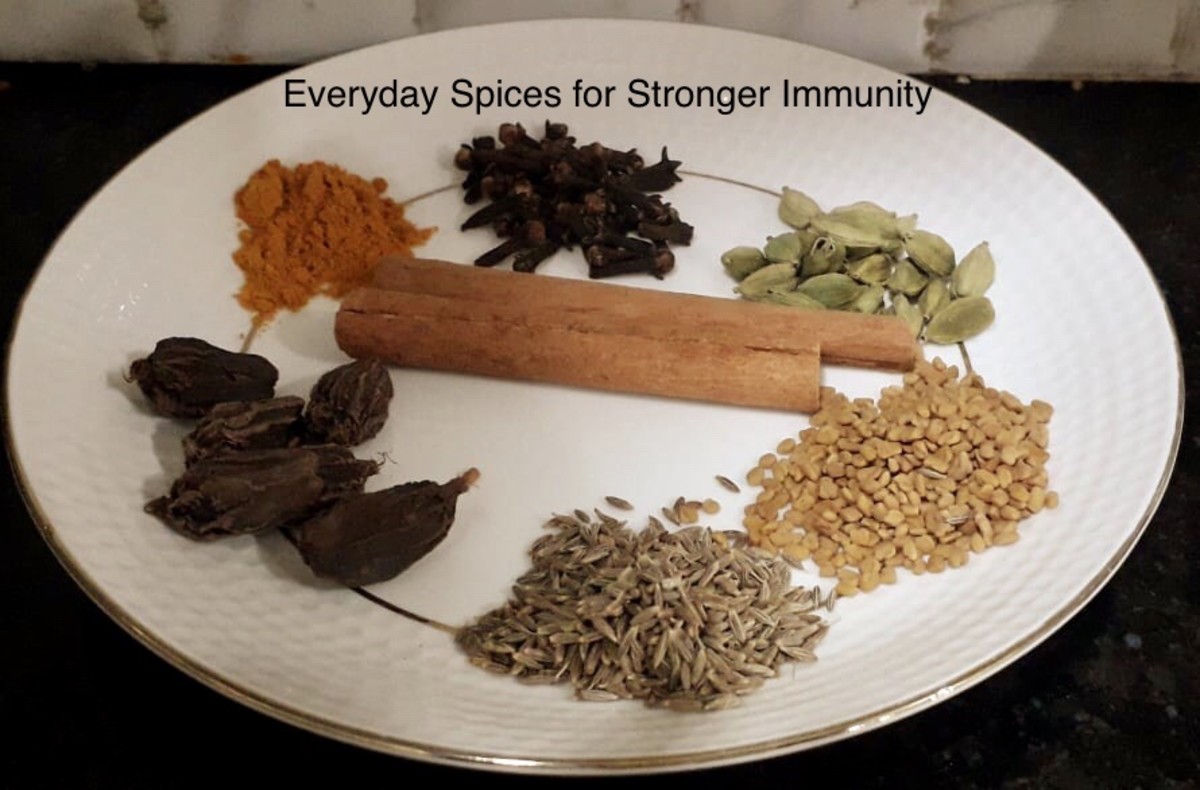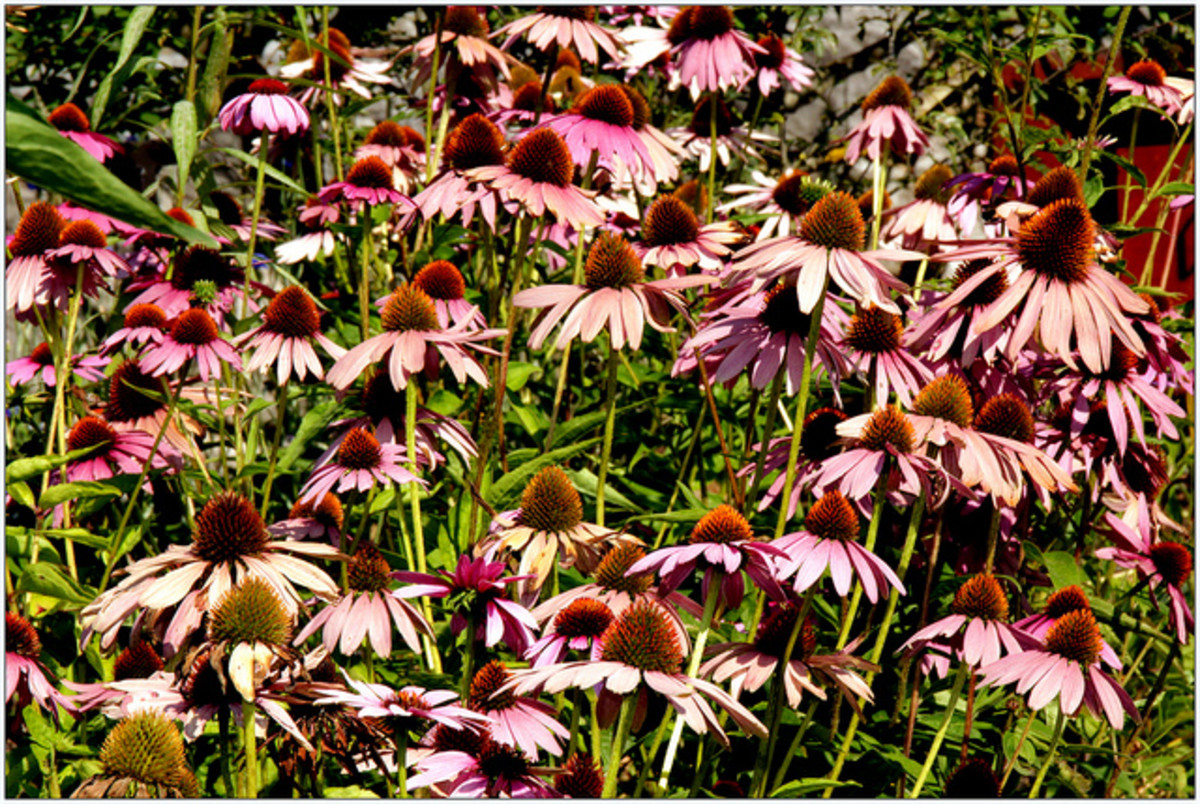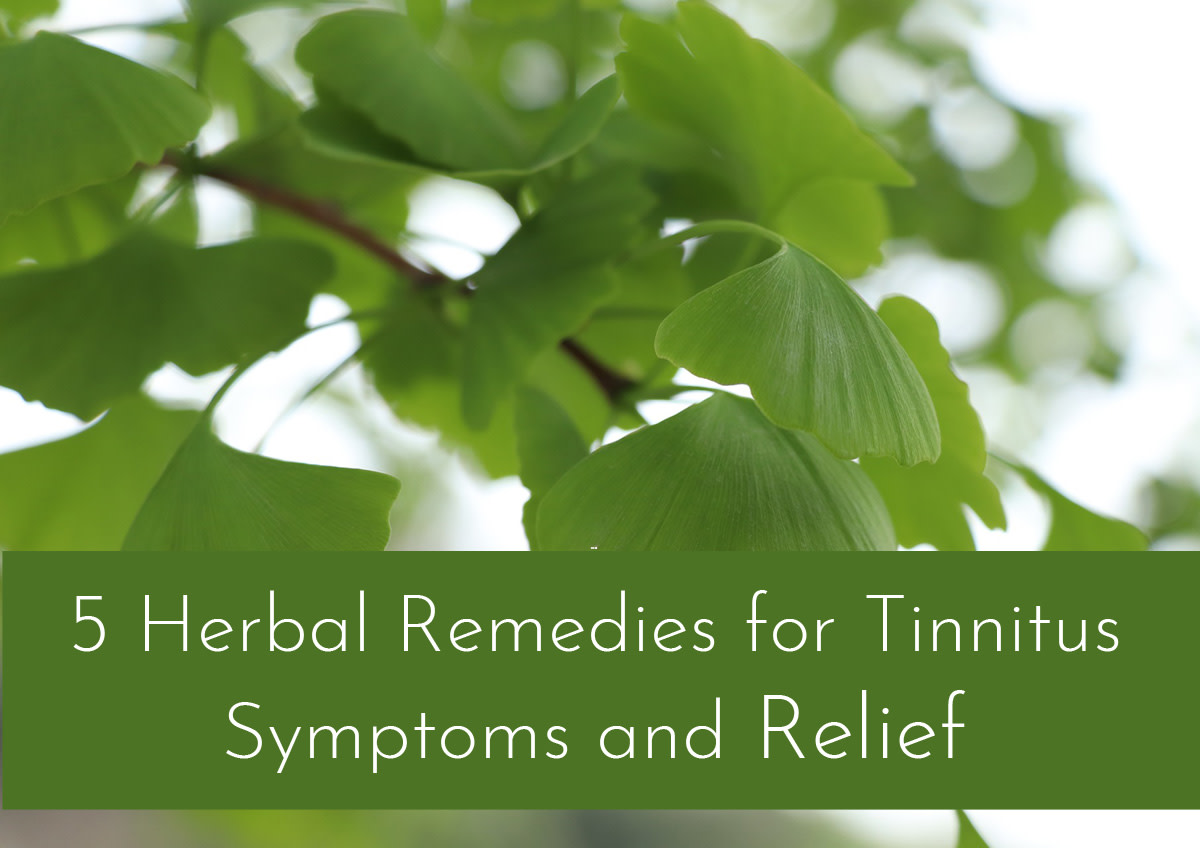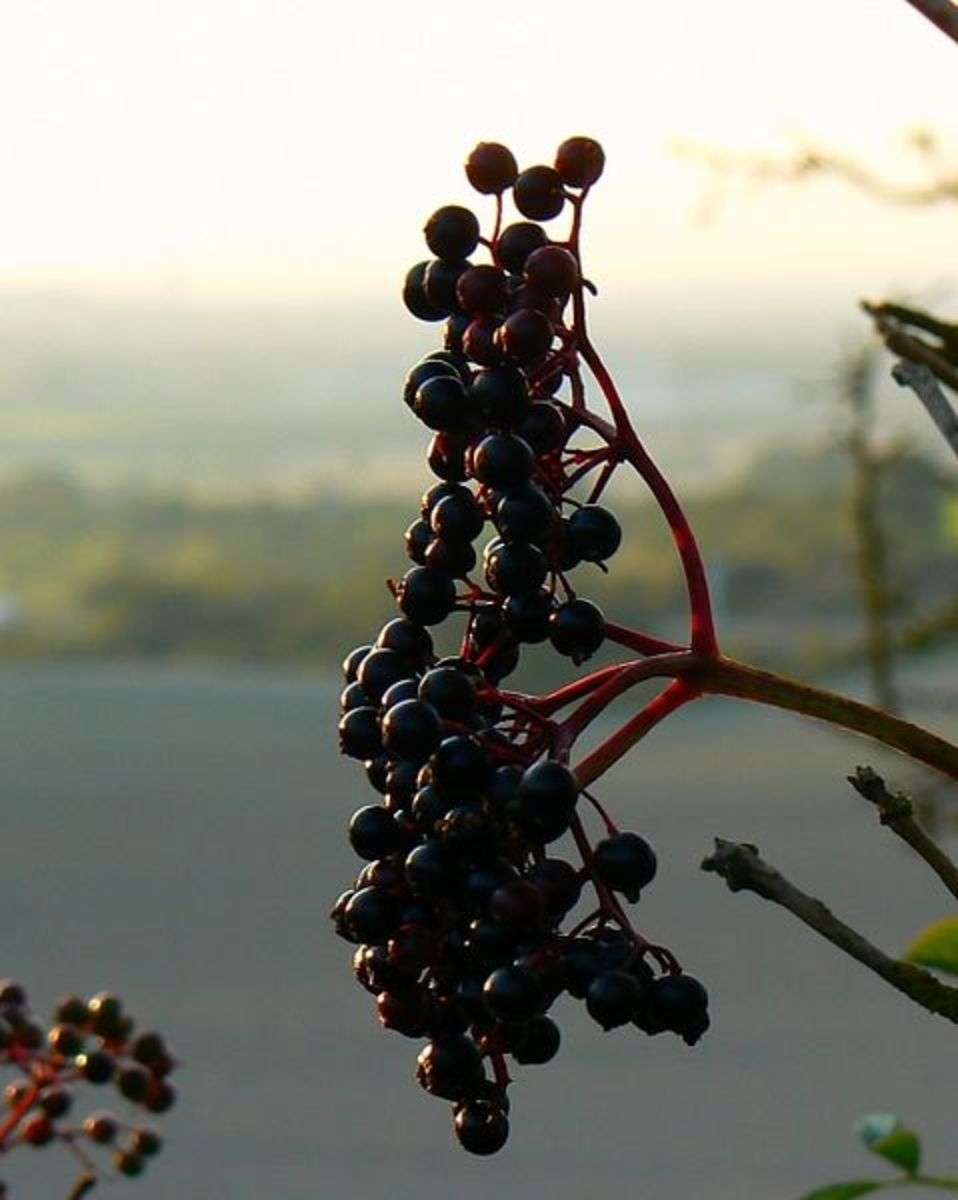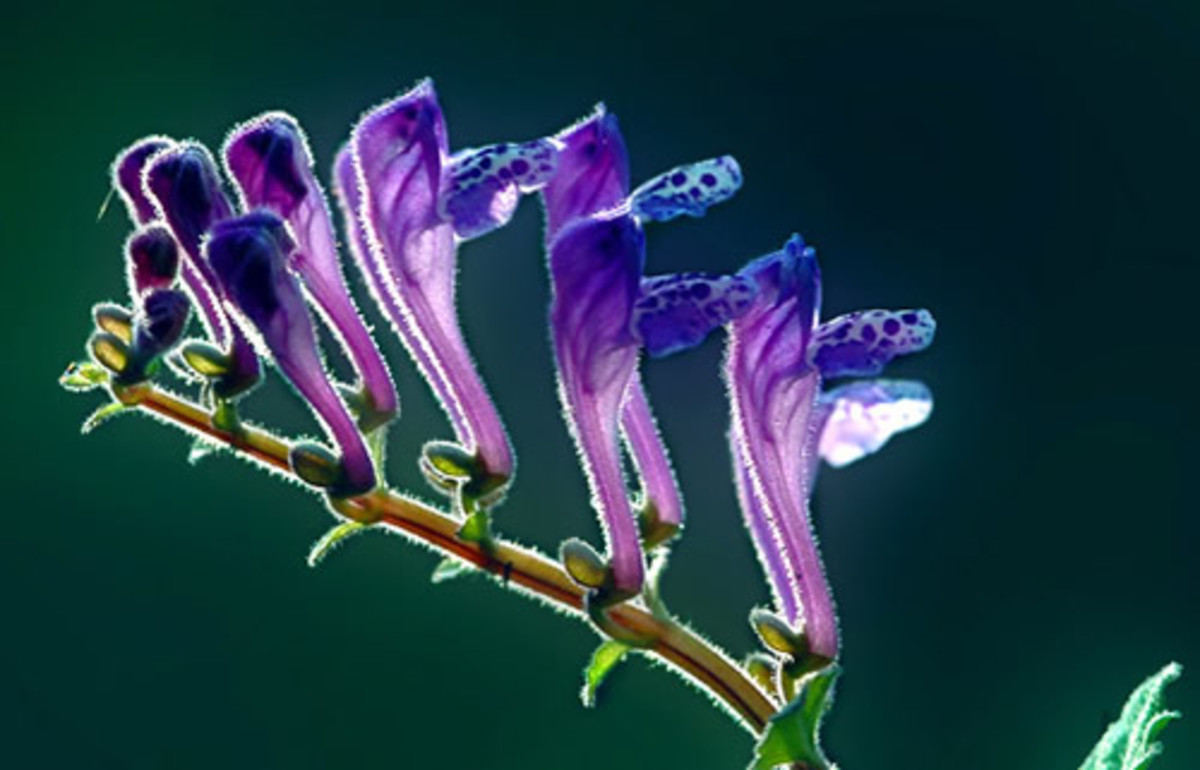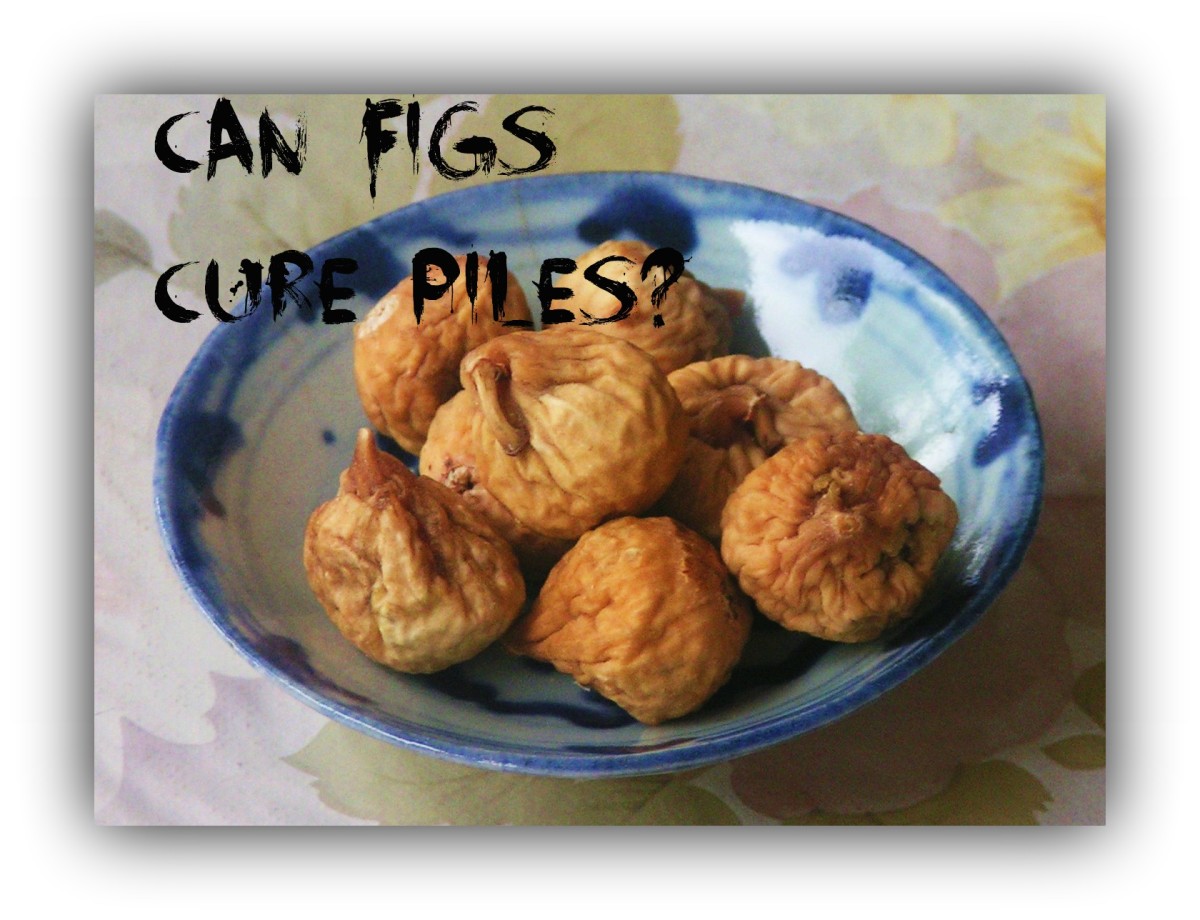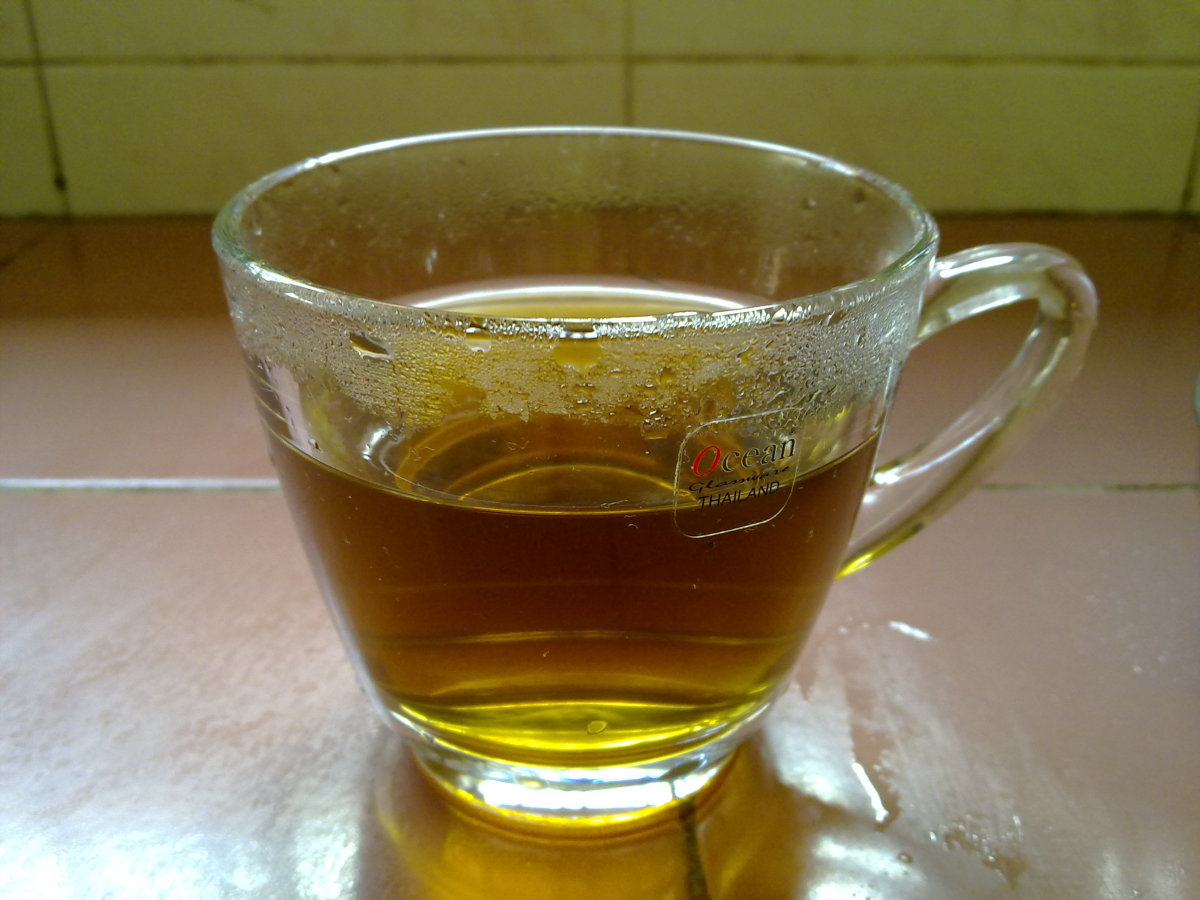Colds Viruses and Flu: Herbal Remedies
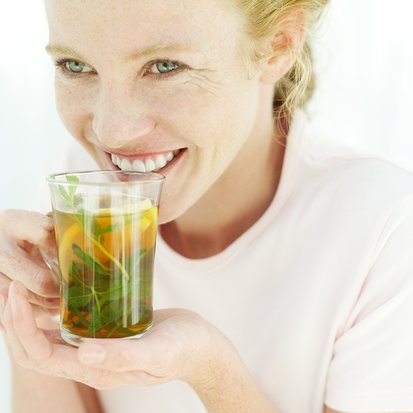
Colds Viruses and Flu: Herbal Remedies is part 3 in a series of providing information for treating a cold viruses and flu this season. Hopefully, this series will assist individuals in taking proactive measures to avoid sickness this cold and flu season. I’m sure you’ve heard the ole saying “an ounce of prevention is worth a pound of cure.” In this case the meaning would be that the time to treat a cold is when you don’t have one. Chances are if you can avoid the first cold this year which is an indication that your immune system is low, the greater the chances of you not being plagued with re-occurring colds throughout the entire season.
According to the National Center for Complementary and Alternative Medicine (NCCAM), not including the rest of the world, Americans alone catch an estimated 1 billion colds each year. They also estimate that 5 to 20 percent of Americans will contract the flu this year. The good news is that there are some steps you can take to possibly increase your chances of not becoming one of the statistics. There are more than 200 different viruses that can cause a common cold. For this reason one should always be equipped with remedies on hand to first a cold or flu at the first sign that you might be getting one.
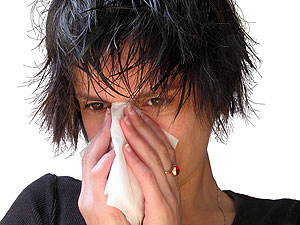
Harsh reality is that you can catch a cold by touching a virus-contaminated surface and then touching their eyes or nose, or by inhaling airborne droplets of infected mucus. Because colds are highly contagious and the virus can live on surfaces for several hours, they can spread rapidly through a household, office, and school. There are easy things you can do to prevent this from happening; one is to frequently wash your hands and try to avoid being in direct contact when a person is contagious, if at all possible.
Another good defense toward prevention that I discovered this year was covered in my first hub, titled Therapeutic Essential Oils for Colds, Flu, and Sinus Allergies. The first hub is a ‘must read’ to learn about essential oils that are anti-viral and anti-bacterial that can offer defense this cold and flu season. Some of the herbs that will be discussed within this hub have been briefly discussed on the second hub of the series titled, Colds Viruses and Flu: Simple Remedies that Works; which offers folk remedies that one can easily find in one’s own home.
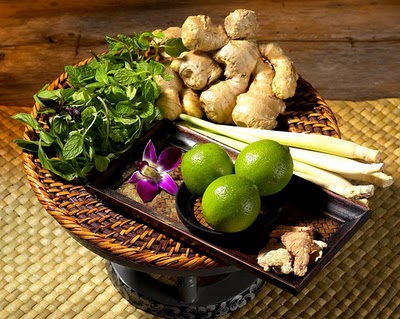
Please do not waste your time or money purchasing prescription antibiotic drugs because they do not fight nor help to prevent the cold and flu viruses. A good doctor will tell you that an antibiotic drug will not kill the cold or flu virus nor will it help to build your immune system. Again, Colds Viruses and Flu: Herbal Remedies will provide information on herbs that work to assist in providing prevention and or cure from colds and flu.
There are lots of herbs that can be used to help either build one's immune system towards cold and flu prevention or assist in helping one to cure a cold or flu once an individual has contacted one. The list that follows are herbs that my sister and I have used over the years for various ailments that my research has revealed are good for fighting the colds, viruses, and flu:
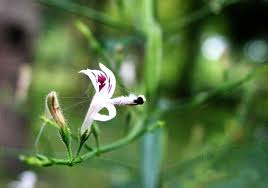
Andrographis - (Andrographis paniculata)
This herb is popular in Scandinavia as a cold and flu treatment. Andrographis is an herb with many promising medicinal properties; its significant antimicrobial activity shows promise in helping to reduce the over-prescribing of antibiotics. According to MedScape Medical News a new study published in Phytomedicine found andrographis to significantly improve cold symptoms. In a controlled environment of comparing a 4-day double-blind placebo trial with 158 adults; individuals actually given the treatment experienced significant improvements in symptoms compared with those in the placebo group. Participants were given 1200 mg daily of an andrographis extract containing 5% andrographalides and appeared to help reduced cold symptoms and prevent colds when taken in a lower dosage. Other studies totaling more than 250 participants confirm the same findings.
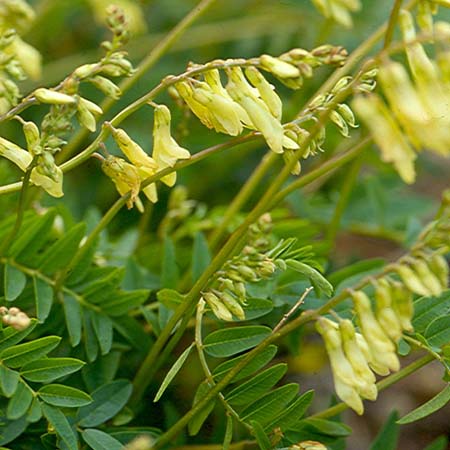
Astragalus - (Astragalus membranaceus)
Astragalus can be used as a prevention herb for strengthening the body against viral infections of the respiratory. This herb unlike echinacea can be taken long-term during the cold and flu season. The benefits of taking this herb are to increase production of antibodies, and increase the production of interferon (an anti-viral and anti-tumor agent naturally produced by the body). The dried root can be used as and extract, encapsulated, or a tea. Powder form can be sprinkled on food or mixed into a smoothie or shake. TCM recommends taking 9-15 grams (3 to 5 tablespoons) per day.
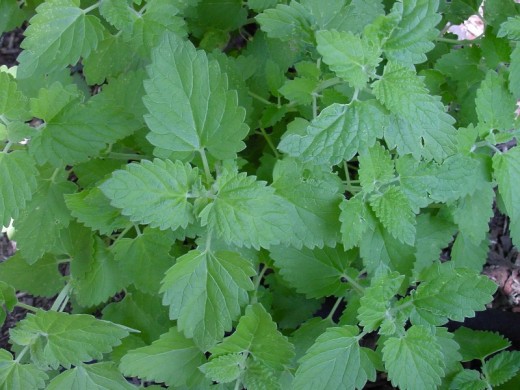
Catnip - (Nepeta cataria)
Yes, this is the herb that if you are a member of the feline cat family it will make you euphoric and high. Well this herb is beneficial for humans as well. The leaves of catnip are high in the antioxidants of vitamins C and E, acts as a decongestant, and is a potent sleep inducer for humans.
The primary phytochemicals of nepetalactone isomers are mild sedatives, similar to the active ingredients in valerian root. The mint family of catnip, peppermint, and spearmint all assist to relieve colds and the fevers from flu by causing one to perspire, while calming the spirit and easing breathing.
- Beating Colds and Flus
The best way to beat colds and flus are to avoid them in the first place. Learn to make it difficult for a cold... - Echinacea: Can it prevent common colds?
Studies comparing echinacea with placebo for preventing or shortening the duration of the common cold suggests that echinacea may - Common Colds Prevention Herbal Cure
Cold care is one area where herbs really shine because of the many helpful properties these healing plants have.

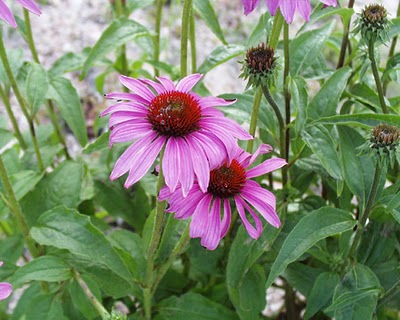
Echinacea - (Asteraceae)
Echinacea purpurea is native to the North America Plains, but now can be found on most continents. The American Indians has used Echinacea for hundreds of years. It increases levels of properdin, a chemical which activate the part of the immune system that fights against virus and bacteria attacks. It is anti-bacterial, an excellent blood cleanser, it helps sweep dead cells through the channels of the lymphatic system and dispatches white blood cells to fight infection.
In July, ’07 The Lancet Infectious Diseases issued a paper of statistical techniques used to evaluate over 700 studies to analyze results of findings about this herb. The analysis concluded that echinacea reduced the risk of catching a cold by 58 percent. Of course, the skeptics are still unwilling to readily accept these statistics. The brand of Echinacea I take requires that you take it for two weeks, off a week, and then take another consecutive two weeks. Some brands require you take them 10 days and then rest a week prior to taking another 10 days of echinacea.

Elderberry - (Sambucus nigra)
The elderberry herb has been considered an old Gypsy remedy for colds, viruses, and flu for centuries. Compounds in elderberry bind to viruses before they can penetrate the walls of cell, thereby inhibiting their ability to spread throughout the body. A 1995 Israeli study, of elderberry extract found improvement both symptoms and the duration of flu (two to three days in the treated group versus six days in the placebo group) when this herb is taken. The recommended dosage is 500 milligrams twice daily of an extract that contains 5 percent flavonoids. Another trial of the patented Israeli drug (Sambucol) reported that within 3 days, 90 percent of flu sufferers reported being completely well.
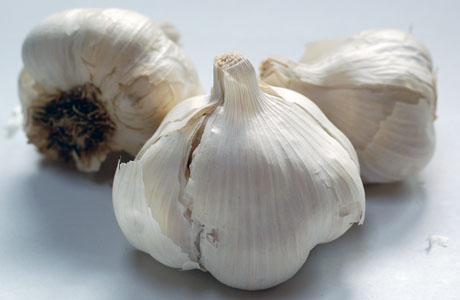
Garlic - (Allium sativum)
According to Natural News, there have been studies that have shown that taking daily supplements of garlic that contains allicin (an active ingredient produced by the plant) reduces an individual’s chance of contacting a cold by 50 percent.
Holistic practitioners often recommend taking several cloves of raw garlic daily during an infection. You can find this herb in an extract, encapsulated, or pill form, as well as consuming such products as hot garlic bread or toast. As a pill or capsule one must take 500 milligrams (one clove) three a day for up to five days to help detoxify the body.
Colds Viruses and Flu: Herbal Remedies

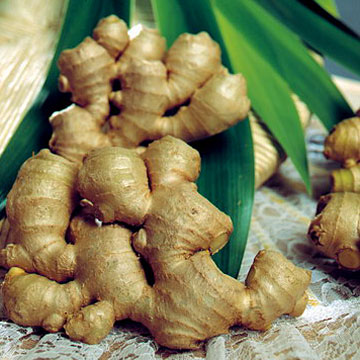
Ginger - (Zingiber officinale)
Ginger is another of nature’s antiviral, antiseptic, antioxidant, and pain-relieving herbs that can be used during the cold and flu season. This herb is used for numerous ailments it has more than twelve antioxidants and is anti-inflammatory qualities.Ginger has played a versatile role in Chinese, Japanese, and Indian medicines since the early 1500s.
Scientists have discovered several chemicals (sesquiterpenes) in ginger that are effective against the most common cold viruses, the rhinoviruses. It works wonders for sore throats, in preventing and treating colds, and inflammation of mucus membranes. Try drinking it as a hot tea prior to bedtime to help reduce pain and fever, in addition to providing a mild sedative effect to encourage sleep.
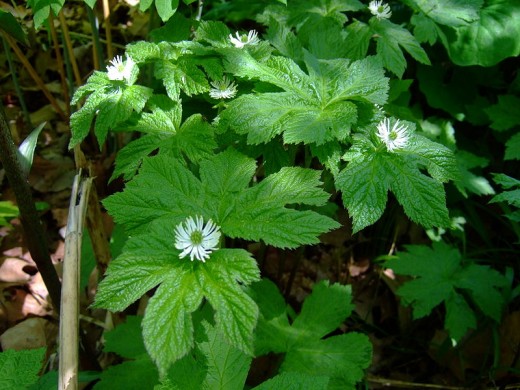
Goldenseal - (Hydrastis Canadensis)
The body’s staging area for the fighting cells in your immune system takes place in the spleen. Goldenseal sometimes called ‘yellow root’ is antiseptic and stimulates the immune system by increasing the blood supply to the spleen. A chemical in Goldenseal called Berberine, activates macrophags (special white blood cells), destroy bacteria, fungi, viruses and tumor cells.
Goldenseal can be applied to canker sores that occur during the time one has a cold, virus, or flu and can be used as a mouthwash for sore gums, mouth and throat. It can be combined with echinacea in preparations used for colds. It comes in many forms: the underground roots or stems of the plant are dried and used to make teas, liquid extracts, and solid extracts are used to be made into capsules and or tablets.
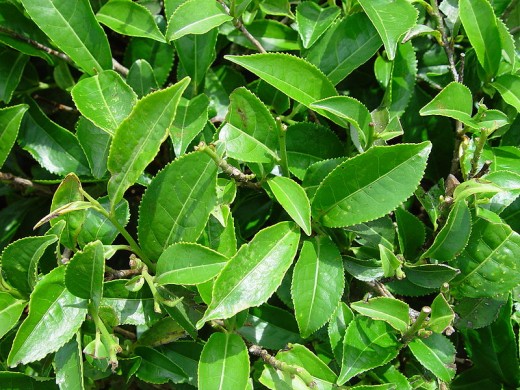
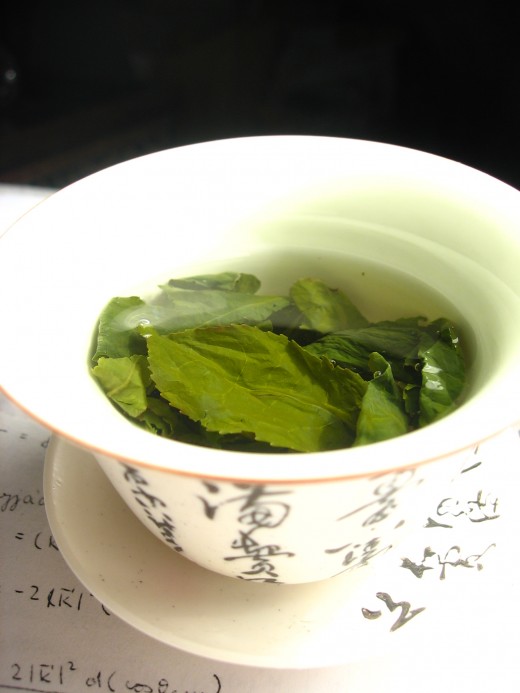
Green & Black Teas - (Camellia sinensis)
Scientists have counted over a billion viruses within one teaspoon of seawater and or fresh water. Thank goodness most of these viruses are not harmful to humans. As you may know green and black teas are so good for you; but did you know that researchers have discovered that tea protects cell walls from viruses. The primary antioxidant polyphenol from green tea and theaflavin, the primary antioxidant polyphenol from black tea helps to prevent both A and B influenza viruses.
In addition, drinking the green and black teas will help to detoxify and rid your body of nasty toxic viruses that causes aches and pains. Needless to say, green and black teas carry the one, two punch in fighting colds and flu in that it boasts your immune system while seeking to destroy the viruses. The Iwata, 1997 study showed that people given a black tea gargle twice daily for the five winter months had a 25 % reduction in contacting colds and flu viruses. While I prefer to drink green and black tea as to gargling with it; one can keep this in mind if you do not like the taste of the tea. Also, Pace University performed a study that revealed white tea has both anti-bacterial and anti-viral properties which are greater than green tea. So if green and black tea flavors are too strong; you might like the lighter flavor of the white tea.
More Hubs that Offer Tips on Fighting Colds Viruses and Flu
- Traditional Chinese Medicine (TCM) for Seasonal Allergy Relief
Allergy sufferers will be looking to seek relief from the allergens that ails them even in the winter months and will have to know.... - Therapeutic Essential Oils and Healing Naturally
Must Haves to assist in fighting colds, viruses, flu, and other allergies naturally with essential oils - Home Remedies for Seasonal Allergy Symptoms
Learn more about home remedies for seasonal allergy symptoms that has worked for...
Conclusion
Again the best time to begin to fight colds, viruses, and flu is when you don’t have one. So get stocked up on natural and herbal remedies now in order to start fighting the cold and flu season before it hits your household. Once your immune system becomes low it takes a while to build it back up again, and during this time you are subject to catching another cold or flu. A low immune system is the main reason why many people during this season seem to stay sick all the time.
This is the conclusion of Colds Viruses and Flu: Herbal Remedies; while there are numerous other herbs that can assist you in fight off viruses it is important to become familiar with a few and learn when and how to use them to assist you in staying healthy this winter. Perhaps you and your family use some of these herbs are others during the cold and flu season, please feel free to share your thoughts in the comments below.
Namaste’
Disclaimer: This information is solely for informational purposes. IT IS NOT INTENDED TO PROVIDE MEDICAL ADVICE. Before engaging in any complementary medical technique, including the use of natural or herbal remedies, you should do your own research, and then consult your present physician. If your doctor does not believe in alternative medicines and you would like to give them a try then find a reputable doctor, TCM specialist, certified herbalist or naturopathist familiar with alternative medicines that can assist you in deciding what treatments might meet your specific needs.

Add'l Info
- Health Topics A-Z | Smart Publications
Health Topics A-Z Clarifying the Complex World of Nutrition Science. - Colds and Flu and CAM: At a Glance [NCCAM Get The Facts]
Basic information on colds and flu, as well as what the science says about some CAM approaches. - health articles getting rid of the cold and the flu 2181338
health articles getting rid of the cold and the flu 2181338











